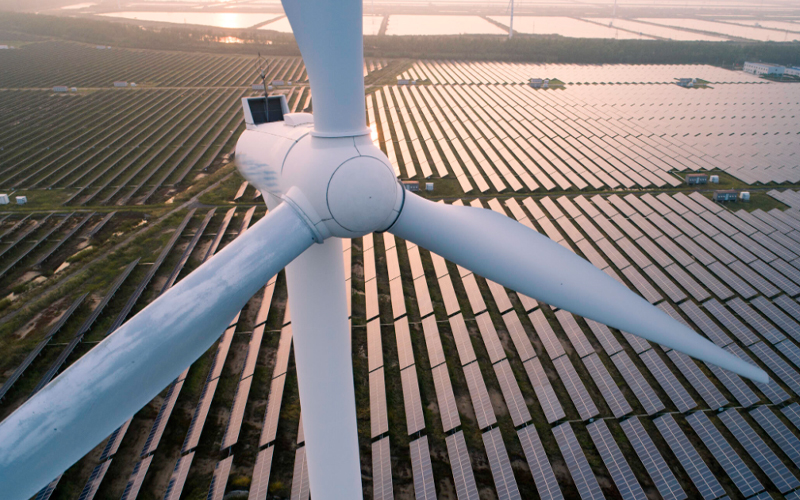Urbanisation, population growth, unexpected global disruptions and market volatility have collectively put a strain on modern utilities. While delivering dependable service and cost-effective solutions, utility service providers must simultaneously pursue sustainability goals — a complex balancing act that poses significant operational challenges.
The entire utility landscape, comprising electricity, water, natural gas and telecommunications, grapples with issues like deteriorating infrastructure, intricate regulatory frameworks and supply chain disruptions. Furthermore, growing consumer expectations coupled with the pressure to maintain affordable pricing intensify these pervasive problems.
The energy sector highlights these broader complexities particularly well. Aging infrastructure causes operational inefficiencies, frequent service interruptions and costly power outages. The transition towards renewable energy sources demands substantial capital investment. Managing the unpredictable nature of solar and wind power complicates the task of matching electricity supply with real-time demand. Modern digital grid systems, while offering advanced capabilities, expose utilities to sophisticated cyber threats. Market instability limits funding for critical infrastructure upgrades.
These multifaceted challenges underscore the urgent need for transformative approaches, creating a foundation for the emergence of smart utility solutions.
understanding these intelligent utilities
Smart utilities represent the next evolution in public infrastructure — moving from static, reactive systems to adaptive, intelligent systems. By integrating technologies like the Internet of Things (IoT), Artificial Intelligence (AI), cloud computing and automation, these utilities gather real-time data, predict demand, detect faults and respond proactively to changing conditions.
At the core of smart utilities are connected devices and sensors embedded across grids, pipelines or infrastructure. These devices continuously monitor metrics like energy usage, pressure levels, system faults and environmental conditions. AI-powered analytics process this data to optimise resource distribution, identify anomalies and automate routine maintenance.
This intelligence translates into several significant benefits, including improved efficiency, enhanced reliability, increased sustainability and customer-centricity and bolstered resilience.
bedrock of future energy industry
As the energy landscape undergoes fundamental changes, smart utilities serve as the cornerstone for building tomorrow’s energy infrastructure. These advanced systems create the foundation for a more agile and sustainable energy network designed to meet the future’s complex demands. The energy sector’s transformation hinges on five critical priorities where smart utilities deliver measurable impact:
- renewable energy integration and grid decentralisation
- grid stability and operational resilience
- energy efficiency and demand management
- cybersecurity and advanced analytics
- investment growth and climate goals
Smart grids support two-way energy flow, allowing distributed renewable sources to supply electricity back into the grid. Through AI-powered forecasting and continuous monitoring, these systems predict renewable generation patterns, maintain supply-demand equilibrium and optimise energy distribution. The International Energy Agency emphasises that smart grids are fundamental for managing variable renewable deployment while reducing infrastructure costs and enhancing grid resilience. This foundational capability enables all subsequent improvements in grid operations and efficiency.
Advanced sensor networks and smart meters provide continuous grid health monitoring, enabling predictive maintenance and autonomous fault response. Utilities can automatically detect issues and reroute power around problems, significantly reducing outage duration and associated costs. These capabilities can reduce operational and maintenance expenses by 10-20% while improving overall system reliability. This operational excellence creates the stable foundation necessary for effective demand management programs.
Real-time consumption data empowers consumers to make informed energy decisions while enabling utilities to implement targeted demand response programs. By incentivising off-peak usage and automating load management, these systems achieve 2-8% reductions in peak demand, minimising waste and reducing both costs and emissions. This demand optimisation works in tandem with cybersecurity measures to ensure reliable system operations.
Smart utilities deploy sophisticated security protocols and AI-driven anomaly detection to protect critical infrastructure. Comprehensive data analytics platforms process information from multiple sources — smart meters, SCADA systems and weather stations — enabling accurate forecasting, fraud detection and operational optimisation. These security and analytics capabilities are essential for maintaining public trust and regulatory compliance, which supports continued investment in smart grid technologies.
The smart grid market supporting renewable integration reached $187.5 billion in 2022 and is projected to grow to $427.9 billion by 2031, representing a 9.6% compound annual growth rate. These investments directly support efficiency improvements, reliability enhancements and resilience building necessary for meeting climate objectives, creating a virtuous cycle that funds further technological advancement across all priority areas.
path forward
As utilities face growing pressures, intelligent systems offer a clear path to sustainable, efficient and resilient services. Smart utilities are transforming how essential services operate in a complex world.
These data-driven networks enable future-ready innovations like advanced energy storage, EV integration and optimised distributed energy. Projected market growth through 2031 signals strong confidence in their role in meeting global climate goals.
Achieving this shift requires coordinated investment in technology, talent and supportive regulation. Utilities that act now will be better prepared for the future. The time to embrace intelligent infrastructure is now — the future of reliable and affordable utility services depends on it.
how can Infosys BPM help?
The time is now for energy and utility operations to evolve. Infosys BPM’s advanced energy and utilities solutions leverage AI/ML and RPA to optimise everything from data to grid, enabling efficiency, predictive maintenance and superior customer experiences — turning today’s challenges into tomorrow’s intelligent, reliable services.







